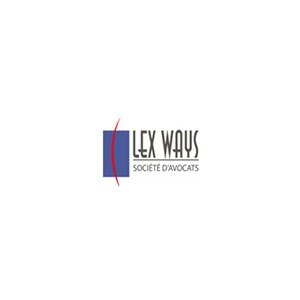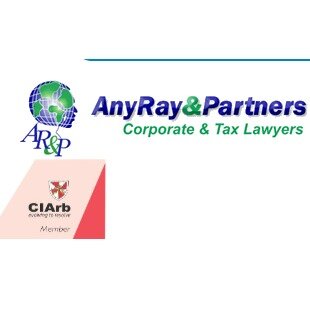Best Energy Regulatory Law Lawyers in Cocody
Share your needs with us, get contacted by law firms.
Free. Takes 2 min.
List of the best lawyers in Cocody, Ivory Coast
About Energy Regulatory Law in Cocody, Ivory Coast
Energy Regulatory Law in Cocody, Ivory Coast, governs the production, distribution, and consumption of energy resources within the region. This area of law primarily focuses on the electricity sector but also applies to renewable energy, oil, and gas. The legal framework is designed to ensure the sustainable, fair, and safe operation of energy markets. Regulations are enforced by both national and local authorities, ensuring compliance with international standards and the unique energy needs of Cocody, which is a dynamic suburban commune of Abidjan.
Why You May Need a Lawyer
There are several reasons why individuals or businesses in Cocody may require the assistance of an energy regulatory lawyer. These include applying for permits and licenses to operate in the energy sector, resolving disputes involving energy suppliers or consumers, ensuring compliance with evolving local and international energy standards, negotiating contracts for energy supply and infrastructure projects, and representing clients before regulatory bodies or in court. With the expansion of renewable energy initiatives, compliance issues around environmental protection and sustainability have also become increasingly relevant.
A lawyer can offer strategic advice for all stages of energy project development, from securing initial approvals to handling regulatory investigations or penalties. Navigating local processes and international agreements often requires specialized knowledge that only trained legal professionals can provide.
Local Laws Overview
Energy Regulatory Law in Cocody functions under the broader national legal framework established by the Ivorian government. Key elements include the Law No. 2014-132 on the Electricity Code, which governs electricity production, transport, distribution, and marketing; regulations on the promotion and integration of renewable energy sources; rules for licensing and tariffs; and obligations regarding environmental protection, community engagement, and safety standards.
The main regulatory authority is the Autorité Nationale de Régulation du Secteur de l’Electricité de Côte d’Ivoire (ANARE-CI), responsible for overseeing electricity sector compliance and protecting consumer interests. Municipal authorities in Cocody may have additional requirements regarding construction, land use, and environmental impact assessments for energy projects within their jurisdiction.
Frequently Asked Questions
What is the role of the main energy regulator in Ivory Coast?
The ANARE-CI supervises energy sector activities, enforces regulations, approves tariffs, issues licenses, and resolves disputes between stakeholders in Cocody and throughout the country.
Which permits are required to start an energy business in Cocody?
You need a license from the ANARE-CI, as well as environmental and local municipal permits. The types of permits depend on the energy source and scale of your operations.
How are electricity prices regulated?
Electricity prices are determined through a tariff structure validated by ANARE-CI, which seeks to balance affordability for consumers and viability for suppliers.
Who can supply electricity or renewable energy in Cocody?
Only licensed operators can supply electricity or renewable energy. Licenses are granted after a review of technical, financial, and safety qualifications.
What legal protections exist for energy consumers?
Consumers have rights to safe, reliable service, transparent billing, and dispute resolution through the regulator or relevant courts if service is unsatisfactory.
Are there specific environmental standards for energy projects?
Yes, energy projects must adhere to national environmental laws, undergo impact assessments, and fulfill requirements for sustainable development when operating in Cocody.
How does the law encourage renewable energy in Cocody?
Policies encourage renewable energy through investment incentives, streamlined licensing, and grid integration opportunities, in line with the country's commitment to a cleaner energy mix.
Can foreign investors participate in local energy projects?
Yes, foreign investors can operate in the energy sector but must comply with Ivorian laws, obtain all necessary licenses, and often partner with local entities.
How are disputes in the energy sector resolved?
Disputes can be handled through negotiation, mediation, or brought before ANARE-CI or the Ivorian courts, depending on the nature of the conflict.
What happens if I do not comply with energy regulations?
Noncompliance may result in fines, suspension or revocation of licenses, or criminal liability in cases of gross negligence or deliberate violation.
Additional Resources
If you need more information or assistance about Energy Regulatory Law in Cocody, you can turn to the following resources and institutions:
- Autorité Nationale de Régulation du Secteur de l’Electricité de Côte d’Ivoire (ANARE-CI) - National regulatory authority for the electricity sector
- Ministry of Mines, Petroleum, and Energy - Provides policy guidance and project approvals
- Cocody Municipal Administration - Local ordinances and permitting
- Environmental Protection Agency of Ivory Coast - For environmental impact and compliance
- Professional organizations such as energy law associations and business chambers
Next Steps
If you require legal advice or representation regarding Energy Regulatory Law in Cocody, Ivory Coast, consider the following steps:
- Identify your specific legal issue - whether it involves permits, compliance, contracts, or disputes
- Collect relevant documents such as licenses, contracts, and correspondence with authorities
- Contact a qualified local attorney specializing in energy regulatory law
- Consult relevant regulatory bodies for guidance on processes and requirements
- Stay informed about changes in laws and regulations impacting the energy sector in Cocody
Remember, early legal advice can help you navigate energy sector complexities, secure your investments, and avoid costly disputes or penalties.
Lawzana helps you find the best lawyers and law firms in Cocody through a curated and pre-screened list of qualified legal professionals. Our platform offers rankings and detailed profiles of attorneys and law firms, allowing you to compare based on practice areas, including Energy Regulatory Law, experience, and client feedback.
Each profile includes a description of the firm's areas of practice, client reviews, team members and partners, year of establishment, spoken languages, office locations, contact information, social media presence, and any published articles or resources. Most firms on our platform speak English and are experienced in both local and international legal matters.
Get a quote from top-rated law firms in Cocody, Ivory Coast — quickly, securely, and without unnecessary hassle.
Disclaimer:
The information provided on this page is for general informational purposes only and does not constitute legal advice. While we strive to ensure the accuracy and relevance of the content, legal information may change over time, and interpretations of the law can vary. You should always consult with a qualified legal professional for advice specific to your situation.
We disclaim all liability for actions taken or not taken based on the content of this page. If you believe any information is incorrect or outdated, please contact us, and we will review and update it where appropriate.












